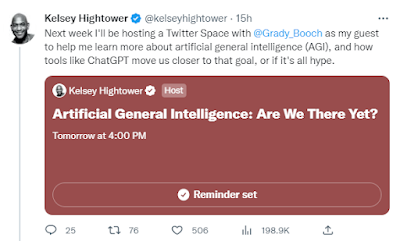The magic of the blockchain - demystiified
Before the first computer (that we know of), the word 'computer' actually referred to people. People that spent their days in rows of desks in a room doing math. Complex mathematical equations performed individually whose results were put together to solve some larger problem. For a fiction look at this I suggest the movie 'hidden figures'. Essentially these groups of people were the first example of 'distributed computing', and it could be argued that the advent of electronic 'digital' computers was the first example of the general purpose computer replacing human jobs.
No one could have imagined that this 'distributed computing' would eventually turn into a GAME, played by geeks on their own personal computers 50+ years later..but this is just what has happened !
Before 'bitcoin' a project known as 'SETI @ home'. This was a program you could download and by running it you would share a portion of your computers processing power in the analysis of data for the search for extra-terrestrial intelligence (finding ET). Of course this was voluntary and free, people who shared their computer 'horsepower' received no pay (or praise) for it. (FYI - You can still use SETI@Home, and folding@Home (which helps to solve the complex problems of proteins folding for diseases such as cancer, as well as research regarding the more recent COVID-19)
Crypto currency brought about the 'blockchain'. A public ledger recording transactions of digital currency. Prior to crypto-currency, the problem of modern currency is that it basically amounts to just 'numbers' in banks. Removed from the touch and feel of cold hard cash, these numbers on a computer if (illegally) manipulated would "create" or "destroy" money. Technology could try to thwart attackers actions, but could not itself "prove" what was a real transfer and what was fake by an imposter. - Good movie examples of how flawed this can be watch the movie Office Space and Superman 3, albeit fictitious of example of the real life - 'salami slicing'
The first idea of 'bitcoin', was basically a mathematical solution to this 'proof problem' using a specific type of encryption known as 'asymmetric encryption'. Unlike typically encryption which uses a pass phrase to encrypt and decrypt the content, asymmetric encryption requires 2 keys. One key which encrypts and a second key which decrypts.
This meant that a person can hold only his/her private key, and release a second "public" key to the world at large. If the user encrypted text with his private key, ANYONE could decrypt it with the public key, and this would 'prove' the message could have only come from the person with the private key. Conversely, if another person encrypted a message with the users PUBLIC key, only the user containing the private key would be able to read it.
Okay..okay so what about the game part?
Right at this second - thousands (or millions?) of computers are playing a mathematical game. Users are sending out digitally signed 'transactions' to a global decentralized ledger. In order for these transactions to be successfully published a complex set of mathematical rules gets applied to the ledger. Unlike SETI @ HOME, the people who own these machines do not loan out their computing power 'for free'. A bounty ($$) is set for each transaction, and the computer that first solves the necessary mathematical puzzle that can publish the transaction to the ledger 'WINS' and gets the bounty. It is important to note that the winner these days is often a collection of machines that have joined together. Today a single machine is often unlikely to find the solution fast enough on its own to win the bounty. The individuals/groups that are solving these puzzles in cryptocurrency terms are called "miners", and the process of solving is called "mining"...and just like playing old fashioned 'BINGO' you can't just should out "I WIN" you have to provide the proof of work that you indeed solved the puzzle. ("the 'HASH')
Contrast this to the beginning of the article, the 'computers' were people who got paid everyday to solve mathematical problems (whether or not they solved it or not). Imagine instead the manager said to them "Okay folks, whomever solves this problem today will get paid, and the rest of you will not... now GO!"
..and this is the "magic" of the blockchain. You send 'x' amount of bitcoin from your wallet to another person's wallet (ie: private key / public key), a bounty is put up for the first machine to solve the puzzle to commit the data block into the block chain. You (as the sender) put up the bounty as part of your transmission (that is the "mining fee"), and the cycle repeats over and over again.
Once the transaction is confirmed, it is now publicly available for anyone to see/review essentially forever. It it is immutable - (ie: cannot be changed/modified), it is decentralized (ie: you can't just 'hack into a bank and change some numbers in your balance), and it is secure (as long as you don't share your private key, and modern computing power remains unable to brute force the keys in any reasonable amount of time).
The specific rules applied to how miners 'solve the problem, and what constitutes a correct solution and an incorrect solution actually defines the 'type of altcoin'. As developers disagree and move in different directions, these 'forks' in the decisions create forks in the software, and this divergence gets different names, each name is now a new type of cryptocurrency. Bitcoin, Bitcoin Cash, Dogecoin, Ethereum, all different rules being applied to the same idea.
The downside of this 'bounty' game system, is that it can have a detrimental impact on the environment. Only one of the machines WIN, while the others spin burning millions of watts of electricity. Some research indicates that playing the bitcoin game is consuming as much electricity and CO2 emissions as an entire country, and the problem only continues to grow as more coins are out there.
One solution to this problem is to switch from 'mining' to a processes instead known as 'staking / forging'. Instead of a competition, the system sends the mathematical problem to a specific user (or set of users) based upon how much coin they have 'staked' into the system. (Staked coin is 'locked' and cannot be traded / sold).
This is analogous to the old 'gold rush' days. You could not be sure where the gold was, but you could pay to setup a 'stake' in a specific land area, and any gold you find in that area was yours to keep. So your 'luck' is based not on being the fastest to find the gold, but being lucky enough to find the gold in your staked area. By reducing the competition in the system a much higher percentage of the energy is devoted to actually confirming transactions, and not just "wasted" to trying to be 'first to the find'.
It is important when choosing your crypto investment, to keep in mind the goals of the coin, and how they match to your own goals / belief systems. Perhaps you don't really care about the environment, or if your bitcoin gains helped buy/sell secret arms to foreign countries, pay for hitmen, and sell drugs to children. Or perhaps you want a coin that helps send a Jamaican bobsled team to the Olympics. The choice is yours.








Comments
Post a Comment